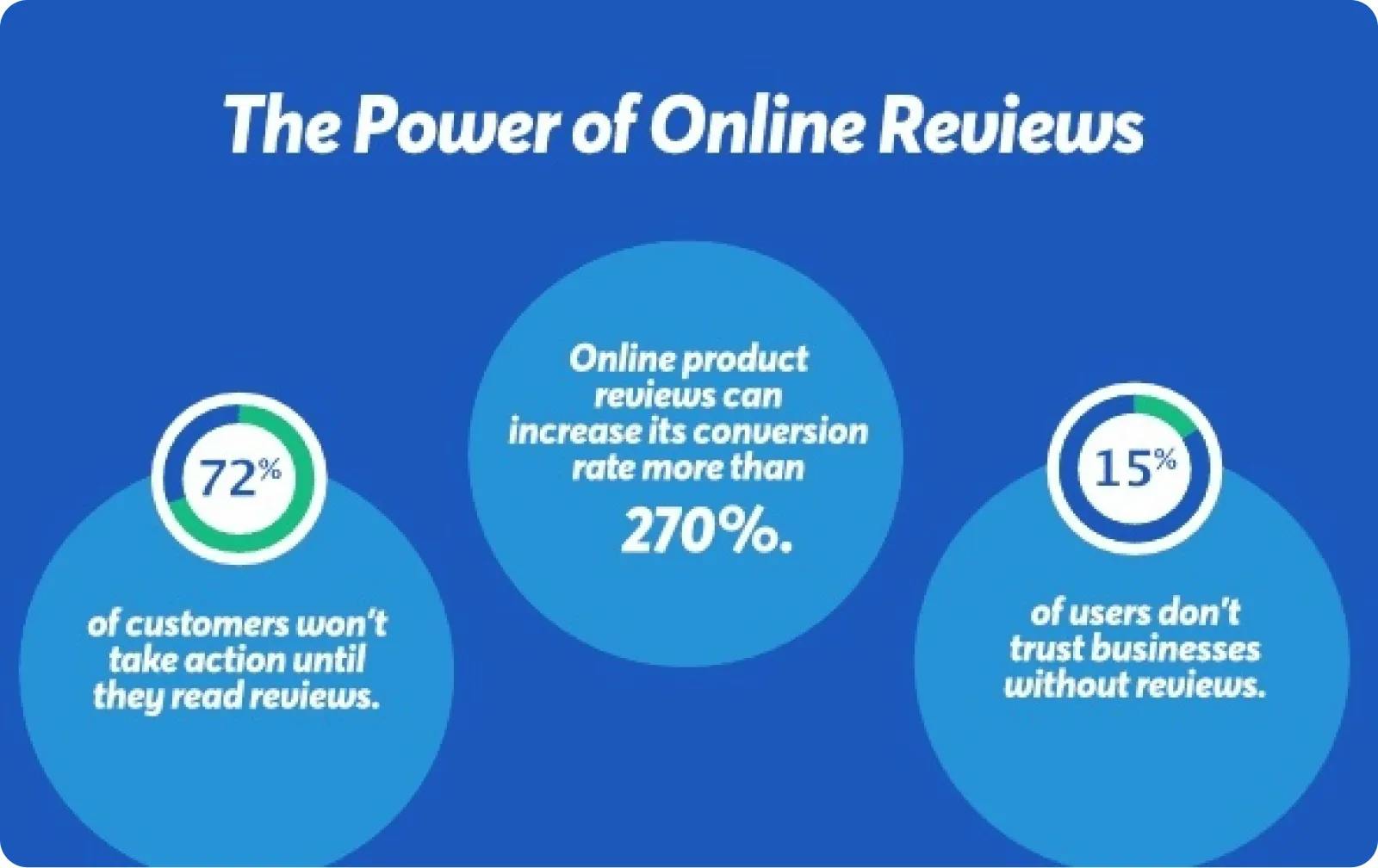Services
Services
Services
Services

Please note: This post contains affiliate links and we may receive a commission if you make a purchase using these links.
W hat's one of the first things you do when researching a company you want to purchase from? You check their online reviews and profiles. What are other people saying about them? Are they reputable? Do they follow through with their promises?
It's fair to say, then, that your customers are doing the same for your company. Managing your business's online reputation has always played an important role in attracting more customers and sales, but perhaps more so now than ever before with the rise of online reviews and social media.
Searching for businesses and checking online reviews and ratings has become a routine part of consumer behavior, which means maintaining your reputation both on and offline has never been more important, particularly when you're marketing your small business.
Bizee spoke with experts in online business reputation management to gain an insight into how to manage your business’s reputation and avoid negative online reviews, especially when it comes to handling online presence.
Small Business Resources that Keep You Moving Forward.
Subscribe Now

Along with the many other things you need to do when managing a company, business reputation management is one of the keys to success. Kristen Bolig, the CEO at SecurityNerd , explains that reputation can make or break a business. “Customers require a level of trust in order to place their money, time and personal information with a company, and if a company has a bad reputation, that level of trust is broken,” says Bolig.
Reputation management can play an important part in fostering a good name and building trust amongst customers. The aim of reputation management is all about keeping your business’s reputation overwhelmingly positive, especially in terms of high ratings, positive online reviews and word-of-mouth recommendations.
In fact, it has been found that online reviews can increase a product's conversion rate more than 270 percent. And 72 percent of customers won't purchase or take any action until they've read reviews. This is proof of the growing importance of online ratings and overall reputation.
 Source
SourceBefore you concern yourself with online reviews, however, you can’t forget about the importance of simply delivering high-quality products or services and having excellent customer service. While reputation management is essential, it makes it much easier on yourself if you’re already producing a top product or service.
Michelle Enjoli, a TED speaker and career development coach, says that when you produce a high-quality product and deliver good customer service , “a positive reputation will not need much managing as it will already be accomplished.”
Producing quality products and services and having well-versed customer service is the first step to maintaining your reputation. You can be more assured of positive feedback and good word-of-mouth recommendations if you have those things in place. As Enjoli says, the best way to guarantee positive reviews is “first assuring that the product or service delivered on its promise.” This will go a long way to limiting negative reviews or feedback both online and in person.
Online reviews are now arguably the most important aspect when it comes to managing your business’s reputation. With more people spending time online, your business’s image and ratings that appear on various internet platforms can impact your customer base and growth potential.
According to BrightLocal’s Consumer Survey , 99 percent of consumers used the internet to find a local business in the last year, meaning that your online reputation and rating can be a deciding factor for many potential customers.
Golda Criddle from ReviewInc suggests that all businesses should actively encourage online reviews from their customers. "Over 90 percent of people look at online reviews when deciding on a professional to work with, so managing those reviews is vital," Criddle says. One of the easiest ways to do this is to send an automated message asking for reviews after each transaction or purchase. You can do this by using a reputation management software, such as ReviewInc, which can help you manage your online reviews across platforms like Facebook, Google, TripAdvisor and Yelp. Criddle adds: "Businesses should respond to all reviews, positive and negative, since they could turn around a negative review."
Marisa Gooch, a reputation management expert at Stage Marketing , says that businesses should welcome all types of feedback, even if some are negative. Feedback should be seen as a helpful tool to gain an insight into your reputation and to see where you can improve.
Gooch suggests that you should reply or respond to all feedback, including negative reviews and the best way to do that is by following the TADAH rule. Gooch outlines the TADAH rule as:
Doing this shows that you’re engaged in your community and customer base and actively listening to their feedback. Bolig suggests, “Ideally, you want to respond to a negative review around 24-48 hours after it is posted.” This shows that you care about the customer’s overall experience and are willing to improve based on feedback.
Maintaining your business’s reputation may seem like a full-time gig, especially with the rising importance of online reviews and ratings. However, you should look at all feedback and reviews as being a chance to gain insight into how you can improve. The main ways to maintain your business’s reputation in the golden age of the internet are to ensure you’re still producing high-quality products and excellent customer service and that you respond to all reviews, even those that are negative.

Jenna Scatena is a writer and content strategist with a love for stories that have never been told before. More than a decade of working with prominent magazines and brands informs her approach to impactful storytelling. Her stories have reached more than 30 million readers, won multiple awards and been anthologized in books. Jenna's work has appeared in Conde Nast Traveler, Vogue, Marie Claire, The San Francisco, BBC and The Atlantic. She's the founder of the editorial consultancy, Lede Studio. Read more


Get Bizee Podcast
Join us as we celebrate entrepreneurship and tackle the very real issues of failure, fear and the psychology of success. Each episode is an adventure.